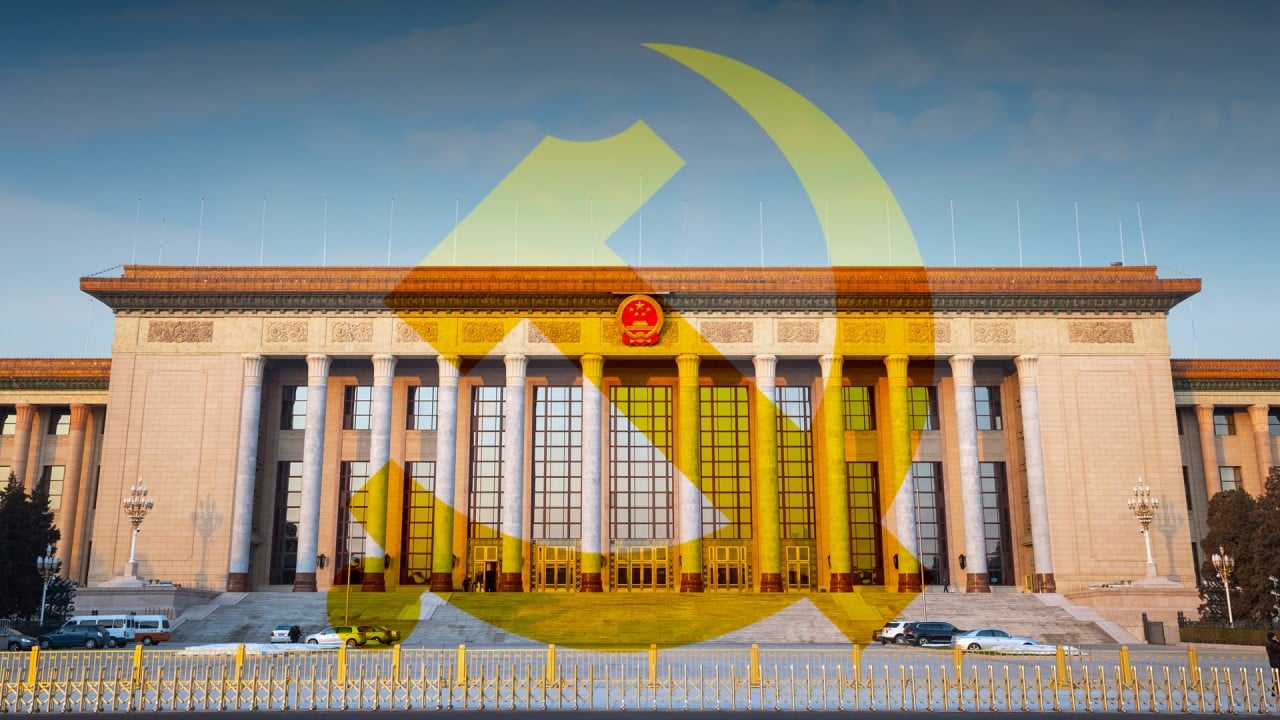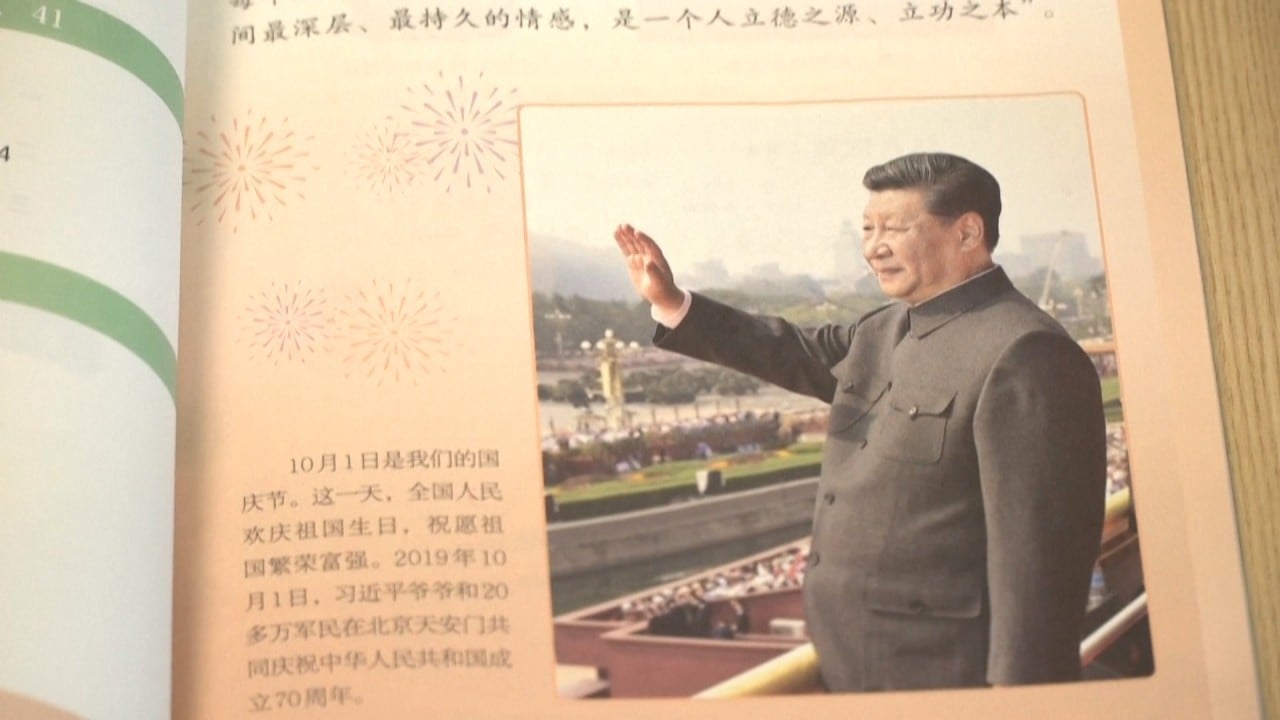
China is not Soviet Russia – that’s why it’s threatening to the US
- China will not trouble ordinary Americans, but it is a serious challenge to America’s global power elites, both economic and political, and so ordinary US voters need to be brainwashed by its mainstream media into believing the China threat
China is not the former Soviet Union and it is a mistake for the United States to assume a “position of strength” to prepare for a new “cold war”, according to China’s new ambassador in Washington, Qin Gang.
He is half right: China is nothing like the defunct USSR. But for American politicians who realise that and therefore don’t necessarily share a cold war mentality, that is precisely why China is scary.
Despite all the cliched American rhetoric and propaganda, China doesn’t challenge the US democratic system and values. America’s partisan citizens and politicians have done a pretty good job doing just that.
But China, whether it wants to or not, does pose a threat to America’s global economic and hegemonic position, by virtue of its natural economic and political expansions.

05:27
‘Socialism with Chinese characteristics’ explained
Decline and fall of the USSR
Three decades after the collapse of the USSR, we now know from official records that since Nikita Khrushchev was deposed, successive Russian leaders knew the game was up for the Soviet communist project. Khrushchev was the last Soviet leader who genuinely thought Soviet Russia would triumph over capitalist America.
As late British historian Tony Judt wrote in Postwar: A History of Europe Since 1945, Soviet leaders’ greatest wish was to die peacefully in their own bed, while still in power.
“On November 10th 1982, at the age of 76, Leonid Brezhnev finally gave up the ghost, having long since come to resemble it,” he wrote.
‘China is not the Soviet Union’ says Beijing’s envoy to Washington
“His successor, Andropov, was already 68 and not in good health. In just over a year, before he could implement any of the reforms that he planned, Andropov died and was replaced as General Secretary by Konstantin Chernenko, himself aged 72 and in such poor health that he could hardly complete his speech at Andropov’s funeral in February 1984. Thirteen months later, he, too, was dead.”
The death, in quick succession, of three Soviet leaders was symptomatic of the rot at the system’s foundations.
Judt continued: “They had inherited and overseen an authoritarian, gerontocratic bureaucracy, whose overwhelming priority was its own survival: in the world that Brezhnev, Andropov and Chernenko had grown up in, merely dying in your bed was no insignificant accomplishment.”

06:45
SCMP Explains: How does the Chinese Communist Party operate?
Soviet communist ideology and its self-belief were exhausted long before the USSR’s formal end. “Marxism was a philosophical or semi-philosophical doctrine and a political ideology which was used by the communist state as the main source of legitimacy and the obligatory faith,” wrote Leszek Kołakowski, the late Polish philosopher and historian of ideas in Main Currents of Marxism.
“This ideology was indispensable, regardless of whether people believed in it. In the last period of (Soviet) communist rule it hardly existed as a living faith; the distance between it and reality was so great, and hopes for the joyful future of the communist paradise were fading so rapidly, that both the ruling class (i.e., the party apparatus) and the ruled were aware of its emptiness.
“But it remained officially binding, precisely because it was the main instrument of the legitimacy of the system of power.”
Beijing frets over arms trade as US weapons seized by Taliban, bought by Taiwan
The rise of China
They may or may not be deluding themselves, but large swathes of the Chinese population genuinely believe in their modern nation-building project, its historical justification, and economic and political viability. China’s leaders may fret about all the profound problems plaguing the nation today, as former premier Wen Jiabao used to confess.
They may not all believe China could replace the US as the world’s top dog any time soon. But most of them dearly believe its economy can exceed that of the US, if it hasn’t done so already as measured by purchasing power parity (PPP), and that it can displace the US as the dominant power in Asia.
In truth, there has never been a better time in the last two centuries for China to regain its global pre-eminence. The legitimacy of the Chinese communist state rests on its economic success and nationalism.

02:53
Xi Jinping Thought to be introduced in China’s classrooms
Economic success was something the former Soviets could not realistically claim. If nothing else, contemporary Chinese consumers can buy anything their Western counterparts can get in their local supermarkets, in the way that the average Soviet citizen never could.
In 2020, the US accounted for 15.9 per cent of global gross domestic product (GDP) after adjusting for PPP. China’s share is 18.34 per cent. The trends of a falling US share of world GDP and a rising Chinese share are projected to continue for the rest of this decade.
If the Chinese state’s legitimacy depends on its economic success, its economy must continue to expand to become the world’s biggest in absolute terms simply for the communist state to keep up, as on a treadmill, and even if it doesn’t want to challenge the US’ pre-eminent position in the world. And it probably does. As Henry Kissinger likes to say, a nation’s domestic needs dictate its foreign policy; the latter is always rooted in the former.
China may be no threat to ordinary Americans. But it is a serious threat to America’s global power elites, both economic and political. That’s why ordinary US voters need to be brainwashed by its mainstream media into believing the China threat. After all, it’s their children, not those of the elites, who may have to fight the Chinese someday.

